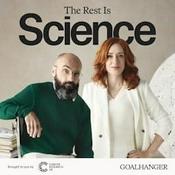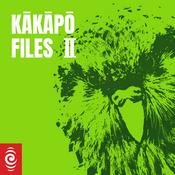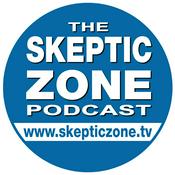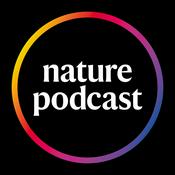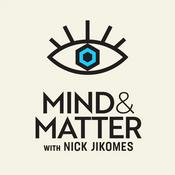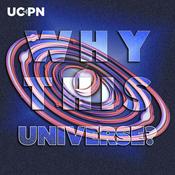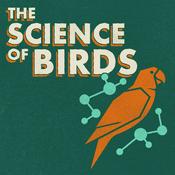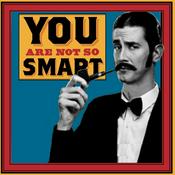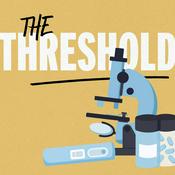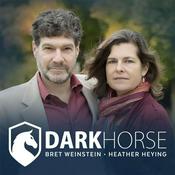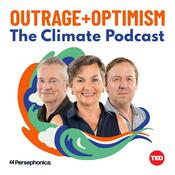The Black Goat
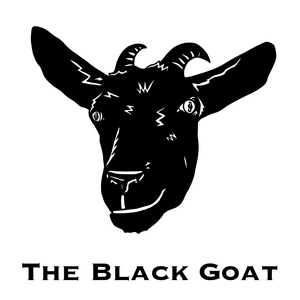
86 episodes

You Took the Words Right Out of My Mouth
30/10/2020 | 45 mins.
In 2012, Rink Hoekstra received two emails on the same day. One was from a journal editor, telling him that a manuscript was being rejected based on the recommendations of two reviewers. The other was from one of those reviewers, complimenting the paper and congratulating him on a job well done. The reviewer, Fiona Fidler, discovered that her review had been altered, and Rink and Fiona teamed out to figure out why. We spoke with Rink in 2018 about what happened, but we held on to the interview in anticipation of the episode being covered by the press. There's now an article out in Science, by journalist Cathleen O'Grady. In our conversation we talk about what happened, and we broaden out to a discussion of publication ethics. Why would an editor want to change a review without asking the reviewer? How does that damage a system that already has so little accountability? And what can authors or reviewers do when they suspect something is up? Link: Delete offensive language? Change recommendations? Some editors say it’s OK to alter peer reviews, by Cathleen O'Grady The Black Goat is hosted by Sanjay Srivastava, Alexa Tullett, and Simine Vazire. Find us on the web at www.theblackgoatpodcast.com, on Twitter at @blackgoatpod, on Facebook at facebook.com/blackgoatpod/, and on instagram at @blackgoatpod. You can email us at [email protected]. You can subscribe to us on iTunes or Stitcher. Our theme music is Peak Beak by Doctor Turtle, available on freemusicarchive.org under a Creative Commons noncommercial attribution license. Our logo was created by Jude Weaver. This is episode 86. Our interview was recorded on October 26, 2018; the introduction was recorded on October 28, 2020.

They Give You This, But You Pay For That
23/9/2020 | 1h 9 mins.
Academics are under enormous stress right now, raising the possibility of a rising rate of burnout. Longtime structural trends in higher education have increased pressures for demonstrable productivity. On top of that are a global pandemic, resistance and backlash to calls for racial justice, and unstable politics in the U.S., the U.K., and elsewhere. In this episode we discuss burnout in academia. We focus on an emerging perspective from the healthcare field that describes burnout as resulting from moral injury. How is this idea relevant to people working in academia? In what ways can we be hurt by being trapped between the ideals and values that brought us into the field and the demands of our working environments? What can we do about it? Plus: A letter about reviewing papers from the global south that do not fit into the usual discourse. Links: Andrew Wilson's Twitter thread about burnout Moral Injury and Burnout in Medicine: A Year of Lessons Learned by Wendy Dean and Simon Talbot, Stat Burnout Is About Your Workplace, Not Your People by Jennifer Moss, Harvard Business Review Job Burnout by Christina Maslach, Wilmar Schaufeli, and Michael Leiter, Annual Review of Psychology The Black Goat is hosted by Sanjay Srivastava, Alexa Tullett, and Simine Vazire. Find us on the web at www.theblackgoatpodcast.com, on Twitter at @blackgoatpod, on Facebook at facebook.com/blackgoatpod/, and on instagram at @blackgoatpod. You can email us at [email protected]. You can subscribe to us on iTunes or Stitcher. Our theme music is Peak Beak by Doctor Turtle, available on freemusicarchive.org under a Creative Commons noncommercial attribution license. Our logo was created by Jude Weaver. This is episode 85. It was recorded on September 16/17 (US/AUS), 2020.

An Award-Winning Episode
09/9/2020 | 1h 4 mins.
Academics love awards. We give out career awards, mid-career awards, early-career awards. We give out awards for the best paper, the best theory, the best teaching, the best service. But what function do all those awards serve? And are we the better for having them? In this episode we talk about how awards fit into the academic ecosystem. How do recipients benefit from them? How do they help the organizations and research communities that give them out? What kinds of biases are baked into the system, and how can we counteract them? Should we consider radically changing how academic awards work, or even doing away with them? Plus: We answer a letter about why academia and policy research have such different norms around checking their numbers. The Black Goat is hosted by Sanjay Srivastava, Alexa Tullett, and Simine Vazire. Find us on the web at www.theblackgoatpodcast.com, on Twitter at @blackgoatpod, on Facebook at facebook.com/blackgoatpod/, and on instagram at @blackgoatpod. You can email us at [email protected]. You can subscribe to us on iTunes or Stitcher. Our theme music is Peak Beak by Doctor Turtle, available on freemusicarchive.org under a Creative Commons noncommercial attribution license. Our logo was created by Jude Weaver. This is episode 84. It was recorded on September 2/3 (US/AUS), 2020.

Contact Sport
26/8/2020 | 1h 7 mins.
The contact hypothesis is an old idea in social psychology. It posits that under the right circumstances, bringing people from different groups together can reduce prejudice. In this episode, we discuss a new field experiment by Salma Mousa testing whether putting Iraqi Christians and Muslims on soccer teams together can rebuild social cohesion after war. Part of our conversation focuses on the direct implications of this work for the contact hypothesis. We also discuss how this study stands out against some common patterns in social science research. Why, despite the long history of research and intuitive appeal of the contact hypothesis, have no studies like this been done before? How did this paper benefit from integrating rigorous quantitative methods with a careful understanding of history and context? How did a commitment to not just the letter, but also the spirit, of preregistration keep the conclusions aligned so well with the data? Plus: We answer a letter about whether the COVID pandemic means this is an especially bad time to start a Ph.D. program. Links: Building social cohesion between Christians and Muslims through soccer in post-ISIS Iraq, by Salma Mousa Can playing together help us live together? Commentary by Elizabeth Levy Paluck and Chelsey Clark Twitter thread by Betsy Paluck The Black Goat is hosted by Sanjay Srivastava, Alexa Tullett, and Simine Vazire. Find us on the web at www.theblackgoatpodcast.com, on Twitter at @blackgoatpod, on Facebook at facebook.com/blackgoatpod/, and on instagram at @blackgoatpod. You can email us at [email protected]. You can subscribe to us on iTunes or Stitcher. Our theme music is Peak Beak by Doctor Turtle, available on freemusicarchive.org under a Creative Commons noncommercial attribution license. Our logo was created by Jude Weaver. This is episode 83. It was recorded on August 19/20 (US/AUS), 2020.

Does Not Compute
13/8/2020 | 1h 1 mins.
Scientific journal articles have a lot of numbers. Scientists are smart people with even smarter computers, so an outsider might think that, if nothing else, you can count on the math checking out. But modern data analysis is complicated, and computational reproducibility is far from guaranteed. In this episode, we discuss a recent set of articles published at the journal Cortex. A group of authors set out to replicate an influential 2010 article that claimed that if you reactivate a fear-laden memory, it becomes possible to change the emotional association - something with clear relevance to clinical practice. Along the way, the replicating scientists encountered anomalies which led them to try to reproduce the analyses in the original study - and they discovered that they could not. We talk about what this means for science. What are the implications of knowing that for a nontrivial number if scientific studies, the math doesn't add up? Will a new era of open data and open code be enough to fix the problem? How much will Verification Reports - a new publication format that Cortex has introduced - help with that process? Plus: We answer a letter about swinging for the fences when your dream job comes up but you don't feel ready yet. Links: The three R's of scientific integrity: Replicability, reproducibility, and robustness, by Robert McIntosh and Chris Chambers The Validity of the Tool “statcheck” in Discovering Statistical Reporting Inconsistencies, by Michèle Nuijten et al Analytic reproducibility in articles receiving open data badges at Psychological Science: An observational study, by Tom Hardwicke et al The Black Goat is hosted by Sanjay Srivastava, Alexa Tullett, and Simine Vazire. Find us on the web at www.theblackgoatpodcast.com, on Twitter at @blackgoatpod, on Facebook at facebook.com/blackgoatpod/, and on instagram at @blackgoatpod. You can email us at [email protected]. You can subscribe to us on iTunes or Stitcher. Our theme music is Peak Beak by Doctor Turtle, available on freemusicarchive.org under a Creative Commons noncommercial attribution license. Our logo was created by Jude Weaver. This is episode 82. It was recorded on August 10, 2020.
More Science podcasts
Trending Science podcasts
About The Black Goat
Listen to The Black Goat, The Rest Is Science and many other podcasts from around the world with the radio.net app

Get the free radio.net app
- Stations and podcasts to bookmark
- Stream via Wi-Fi or Bluetooth
- Supports Carplay & Android Auto
- Many other app features
Get the free radio.net app
- Stations and podcasts to bookmark
- Stream via Wi-Fi or Bluetooth
- Supports Carplay & Android Auto
- Many other app features


The Black Goat
download the app,
start listening.
